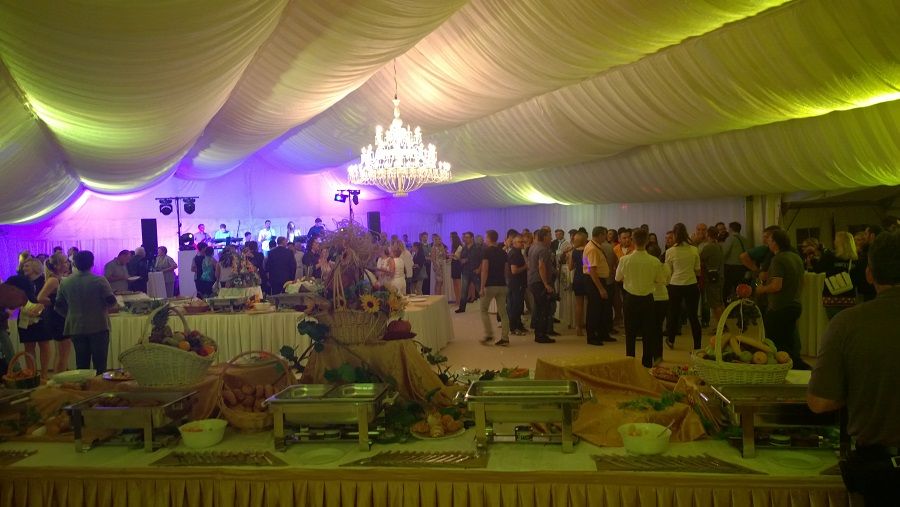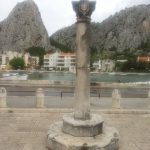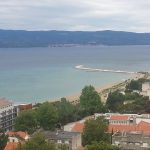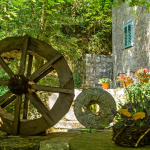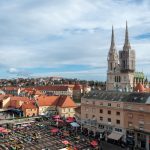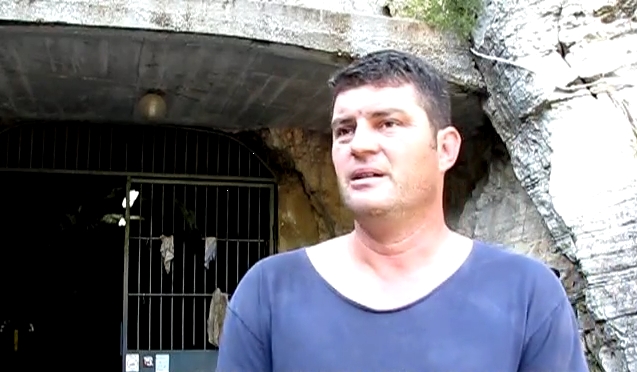
Neglect, success, indigenous sorts, military tunnels, cricket – all part of a wine makers story
My first encounter with Vis winemaker Antonio Lipanović was not exactly memorable. In fact, after insults, which we treated each other to at the Vino.com festival in the Esplanade near the end of 2013, one wishes to never again meet such people. I was euphoric, as I had just brought in printed copies of Vinske Priče to the Zagreb festival and Antonio, stopping by my stand, objected that I am paid by the winemakers I wrote about in the book and that the exclusion of him and other Vis winemakers from Vinske Priče was the result of conscious ignorance of that distant island. I tried explaining that there was no money involved in the stories I printed and that Vis was simply too expensive for me to visit. Then and now, as I have no sponsors, I could not afford to do a story on him and several other Vis producers that I noted in my head to visit on Vis someday. Antonio did not accept my explanation, easily dismissing my compliments for his Plavac Mali with 16 or so percent alcohol. Then I exploded and insulted him, feeling that he cannot devalue someone’s work like that just because he is unsatisfied.
When I recently called Antonio Lipanović and introduced myself by reminding him of our first encounter, he remembered the event. There was a lull. After that thunderous silence neither of us ever mentioned the Esplanade incident…
In essence, Antonio was the same during that conversation as he was three years ago – alone against everyone, angry and disappointed over the neglect of Vis, aware of his value and weakness of others, but also determined in the validity of his course. And, to be honest – he is totally correct! One hundred percent!
“You see, when you live on such a distant and nearly isolated place like Vis, then only agriculture can keep you on the island year-round. Nothing else! And my family and I live only from agriculture and can best feel the lack of attention from the city and county and state in this area. Here is a banal example. I own two hectares of vineyards, while the other two were provided by the state which took 30 hectares of former military shooting range and divided it among wine growers to use. I cultivated my land and planted vines, but – no one else did! And now, instead of having a field covered in vineyards, there are only my two hectares of vines surrounded by bushes. And no one in the city or county care for the failure of the planned cultivation. General neglect,” says Antonio.
At a recent wine tasting of Croatian wines organised by Falstaff, the renowned German language magazine, his 2014 Vugava was rated with 90 points. Naturally, the level of information is two-way and, as many don’t know what is going on on Vis, neither Antonio knew what Falstaff wrote.
“That’s a great rating, I did well considering what the year was like!”
Vugava is a trademark of Antonio’s winery, as 70 percent of wines are produced from the variety that is considered indigenous to Vis, wrongly considered for many years as Viogniera.
South African winemaker Richard Hilton named his Syrah a few years ago Dalmatian, only because of Viognier, which he mixed in small amounts with Syrah in a way practiced in the north Rhone area in France. The reason why Richard Hilton names his wine Dalmatian lies in his conviction that “Viognier was created in Croatia, Dalmatia, where it is known as Vugava.” I will not venture into the validity of Hilton’s claims based on legends, but the cult book “Wine Grapes – A Complete Guide to 1.368 Vine Varieties, Including their Origin and Flavours,” by authors Jancis Robinson, Julia Harding and Jose Vouillamoz, in the description of Vugava it is clearly stated that this variety is often wrongly compared to Viognier. Vouillamoz used DNA analysis to determine that the two varieties do not match.
“Of course I know those stories, but Viognier and Vugava are not alike. I am more concerned that everyone calls the wine Vugava, but it comes from a variety that is indigenous to Vis and everyone here calls it – Bugava. I guess everyone beyond Vis knows better than us! I want to and I will start an initiative to change that and for Vugava to once again become Bugava,” said Antonio whose Vugava was named the best Dalmatian white wine at Sabatina, the traditional wine review of Dalmatian winemakers.
There are only 20 hectares of vineyards with Vugava on Vis island that yield around 20 wagons of grapes, produced into around 100.000 litres of wine. Vugava is said to be produced on an economic basis only on Vis. The new plantations of Vugava above Bol on Brač island, the pride of Stina winery, are not in competition with Antonio. He claims, “Vugava is a Vis variety, while Brač was never known for wine!” Almost 90 percent of his production Antonio sells on Vis, which is why he probably has no marketing approach, or a need for it.
And it’s not that Antonio has no special trump cards to advertise himself and his wine. For example, his Plavac Mali is probably the only sprout of the variety planted and raised in – salbun. Sand! Personally this Plavac Mali, set to be bottled for the 2015 harvest with a special label, “it’s that good,” for me is one of the finest wine of the variety.
“It’s a completely different wine compared to Plavac Mali from Pelješac or Hvar. To me only a harvest with over 15 percent alcohol is a good one! The wine is more drinkable, tannins are softer. I still have a few bottles from 2004 and I can tell you wines from that year still haven’t lost the sort characteristic of Plavac Mali. The roots of Plavac Mali in our vineyards are in deep sand and it has an excellent combination of deep moisture in the ground and sun-tanned grapes. Over here there is often no rain from June to autumn, but the sandy terrain gives the vines enough moisture which gives excellent quality grapes,” claims Antonio.
From the next harvest Antonio is set to bottle a completely new wine that will be labelled – Cipidrag!
“Many things on Vis are pronounced with “c” so Tribidrag became Cipidrag. This year around 300 vines I planted will be harvested for the first time and I will label them Cipidrag, so let them talk!”
He is also the only one who can boast to have bottled Palaruša.
“Last year we managed to harvest enough Palaruša for 130 litres of wine. The variety was planted by local farmers in areas of the island where nothing else would grow. The variety is interesting to coupage with Vugava, as Vugava doesn’t really have acids, it is science fiction to produce Vugava with a 5 Ph acidity. On the other hand, Palaruša wine has a deep amber colour, as if it has oxidised. I sent the wine three times to Split for analysis, and each time they responded the wine is OK. We will bottle it and see how it goes.”
He tried his hand at Kurteloška, another indigenous Vis variety, which he bought 500 kilograms of once from a vineyard. It turned out to be the last harvest of Kurteloška in that vineyard. And Antonio didn’t feel like doing archaeological searches for the vine and stopped producing it.
Antonio also stopped producing Prosecco, still jealously guarding the last one hundred bottles from 2000, when he produced it last.
“I don’t really have the conditions to dry grapes so I passed up on doing so. Some day when I make a small drying hut it would be nice to go into some serious Prosecco business.”
Antonio Lipanović is best known to the public by his ingenuity and quick reaction thanks to which he was the first and the only one to get his hands on a tunnel from Tito’s underground bunker on Vis, in which the military system for the supply of Vis with electrical power was stored, which he converted into his winery. Vis Island is known for having possibly the largest underground town and being completely drilled with networks of underground passages and rooms. This is why citizens and tourists were forbidden from coming to Vis all the way up to 1992. There are 37 military installations, including the renowned Tito’s cave, then an underground military hospital and tunnel to hide war vessels. The main tunnel is 500 metres long and comes out on the other side of the hill. It was home to the command centre, sailors’ quarters and rocket warehouse.
Hence, when Antonio starts talking of Vis wines he cannot leave out the military historical background of the story. Or, when he is visited by John Saker, a respected former professional cricket player, who lately has been writing only of wines, Antonio will say he “may not play cricket as good as him, but does produce the best Vugava in the world!”
Antonio has, besides commandeering a former Yugoslav Army tunnel for his winery, inherited from an even earlier history of his island the passion for – cricket! Furthermore, he was a Croatian national team member in this sport which exists in Croatia in three clubs in Zagreb, Split and Vis.
“In the little time during the year that I can rest from the work in the vineyards and winery, I sometimes relax by going to Split and playing a cricket game there. The game was left over from the English who were on Vis some 200 years ago. Their Commodore William Hoste, commander of the British warships in the Adriatic in the times of Napoleon’s land blockade of the entire Mediterranean, wrote in his letter that he had to keep his crew away from Vis wine and women and hid them behind a hill to play cricket! Even today in Plisko field among the vineyards and blackberries you will find plenty of balls that ended up there.”
Commodore William Hoste, whose name adorns the cricket club on Vis, during his short period on Vis pillaged and sunk 218 ships, inspired by the victory of Horatio Nelson in Trafalgar. Under the slogan “Remember Nelson,” Commodore Hoste with 3 times less sailors and with only four ships defeated French admiral Dubourdie who led a joint escadrille of French and Italians gathered in four frigates, two corvettes and a brig, with a total of 2.655 crew and 271 cannons. Hoste was referred to after this victory as the Young Nelson, the island in front of Vis harbour was named Hoste and Vis residents were left with – cricket.
For the original and more from the Vinske Priče blog on wine, click here.

